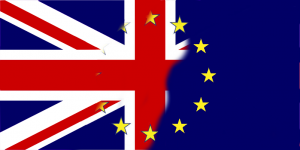Choosing from campaigns of deceit

It’s astonishing that instead of being wooed by romantic ideals expressed with passion… the debate over the future of the country is being conducted in a style worthy of a clearance sale at a furniture showroom…. Costs and benefits matter, money is a handy measuring rod, and spillovers deserve special attention… but that does not mean the way to make good policy is to stick a price tag on everything.
That wasn’t about the current referendum on whether the United Kingdom should remain in or leave the European Union: it was about the Scottish independence referendum. That referendum was vitriolic, with both sides deriding the other’s economic forecast. The EU referendum campaign has been far worse.
Both Remain and Leave campaigns have sprayed dubious economic statistics at the electorate. The Remain campaign claimed that to leave the EU is a leap into the unknown, then bandied around incredibly precise — and increasing large — figures about the alleged cost of that departure. The Leave campaign emblazoned their campaign bus with an exaggerated figure for the UK’s contribution to the EU, and repeated it ad nauseam, despite the figure being widely derided by non-partisan authorities. Both sides have proudly proclaimed their grubby big lies as ‘fact’ and hurled hateful abuse at each other like a once loving couple in the midst of an acrimonious divorce.
Yet what that economics journalist said of the Scottish referendum is true of the EU referendum too: there’s more to this than economics, not least because no one can predict what the economic future will bring much beyond the immediate future. And the choice to separate, whether it be Scotland from the rest of the UK, or the UK from the EU, is a choice that will last much longer than a few economic cycles.
So where are the ‘ideals expressed with passion’? Absent. With both campaigns quite bitterly divided, expression of ideals has either been contradictory or muted.
The Remain campaign, officially united under the umbrella of ‘Britain Stronger in Europe’, has been unofficially — but very publicly — divided. The prime minister and his supporters have been peddling a message the best thing for the UK is to remain in Europe and reform it — totally ignoring that this referendum was meant to be after meaningful reforms had been won. Mr Corbyn and many unions, on the other hand, appear to see the EU as a means of reining in future Conservative governments; as a protector and provider of socialist dreams they’ve not yet convinced sufficient of the British electorate to get elected.
The Leave campaign, officially divided with Leave.EU/Grassroots Out not reconciled with the official Vote Leave campaign, hasn’t been so publicly divided, but nevertheless has two very different strands, some with a fortress Britain attitude, others a libertarian and free-trade approach. That the division hasn’t been so apparent is largely down to neither wing loudly proclaiming their vision, through lack of official backing for some, and from fear that the electorate wouldn’t like the free-for-all implications of their vision for others.
So, in the face of a spiteful, blinkered and vacuous campaign, what’s a voter to do? Fortunately some people have been hunting down some real facts about Britain and its place in Europe and the world. But if you’re looking for a vision for the sort of country you’d like to live in, you’re unlikely to find it amongst the politicians shouting abuse at each other.
As a believer in libertarian and co-operative approaches to life, komadori will be voting to leave the EU. But unlike most elections, that’s not a decision influenced by the political discourse that’s gone before.